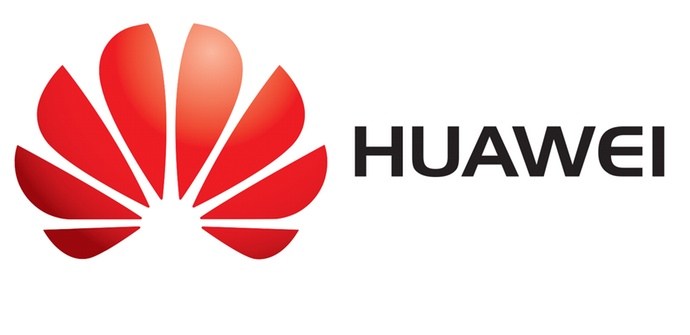Telecom
Huawei says HarmonyOS is not Android Replacement

Huawei has reiterated its recently-launched operating system (OS) HarmonyOS is not a replacement for Android.
Huawei stated this at a media briefing in South Africa to give details of the new OS, which was unveiled last week. When it was introduced, many reports said it was an alternative to Google’s Android OS because of the timing of the launch.
Huawei stated HarmonyOS would initially be used on devices targeting the Chinese market.
The company’s subsidiary brand Honor unveiled the Honor Vision line of smart TVs, as the first consumer electronics devices to run HarmonyOS.
It added the OS will first be used for smart devices like smartwatches, smart screens, in-vehicle systems and smart speakers.
The Chinese telecommunications firm launched its own OS following its blacklisting by the US government, which resulted in companies, including Alphabet’s Google and British chip designer ARM, limit or cease their relationships with it.
Google is still banned from doing business with Huawei, although some exemptions are allowed but must be applied for.
Google’s parent Alphabet announced it would suspend any business that “requires the transfer of hardware, software and technical services except those publicly available via open source licensing”.
It also means Huawei technology would no longer receive software updates, be upgraded to new versions of Android, or have access to the Google Play Store and services. This would lock Huawei devices out of the app store and mean popular services like Google Maps, Music, YouTube and Assistant will not work.
The Google ban would mean future Huawei phones and tablets would no longer have an Android licence.
Speaking during the event, Akhram Mohamed, CTO of Huawei Consumer Business Group SA, said HarmonyOS is not a replacement for Android and it was not launched because of the crisis with the US government.
He pointed out that unlike Android, Harmony’s all-scenario, intelligent experience sets a high bar for connectivity, so HarmonyOS was designed with four distinct technical features to deliver on its promise to consumers.
“We are creating something that did not exist,” said Mohamed. “Harmony is the first-ever device OS with distributed architecture, delivering a seamless experience across devices.”
He explained that HarmonyOS will address underperformance challenges with a “deterministic latency engine” and high-performance inter-process communication (IPC).
According to Huawei, the deterministic latency engine sets task execution priorities and time limits for scheduling in advance. Resources will gravitate toward tasks with higher priorities, reducing the response latency of apps by 25.7%. The microkernel can make IPC performance up to five times more efficient than existing systems.
The company adds HarmonyOS uses a new microkernel design that features enhanced security and low latency.
This microkernel was designed to simplify kernel functions, implement as many system services as possible in user mode outside the kernel, and add mutual security protection. The microkernel itself provides only the most basic services like thread scheduling and IPC.
Powered by a multi-device IDE, multi-language unified compilation, and a distributed architecture kit, HarmonyOS can automatically adapt to different screen layout controls and interactions, and support both drag-and-drop control and preview-oriented visual programming, says Huawei.
It notes this allows developers to more efficiently build apps that run on multiple devices. With a multi-device IDE, developers can code their apps once and deploy them across multiple devices, creating a tightly integrated ecosystem across all user devices.
Mohamed added Huawei is still committed to the Android OS as shown by its continued development of OS EMUI.
Huawei EMUI, formerly known as Emotion UI, is a custom mobile operating system that is based on Android that Huawei uses on most Huawei and Honor-branded smartphone devices.
Telecom
Visa Launches Report on Digital Payment Landscape in Nigeria, Shows Positive Outlook

Visa, a global leader in payments, today announced the launch of a new report, ‘Value of Acceptance: Understanding the Digital Payment Landscape in Nigeria,’ which highlights substantial growth potential for digital payments, particularly among small and medium-sized enterprises (SMEs).

In Nigeria, digital payments are proving beneficial for surveyed SMEs, with nearly 90% believing that it boosts revenue and customer footfall. This growing confidence in digital transactions, especially cards, is coupled with a desire for further digitization, with 76% of cash-only SMEs planning to invest in new payment technologies.
The study also reveals that more than half of merchants already prefer digital payments, with 44% reporting lost sales due to customers’ lack of cash and 62% expressing concerns over fraud risk associated with cash.
Nigeria’s Digital Payments Momentum
An overwhelmingly positive outlook on digital payment investment emerged in the report, with 83% of merchants surveyed seeing this as a crucial component for growth, boosting sales, reducing fraud, and enhancing convenience among customers,
“Nigeria’s digital payments landscape is rapidly evolving, with a growing inclination towards digital transactions,” stated Andrew Uaboi, Vice President & Head, Visa West Africa.
“This transformation not only holds the promise of bolstering SMEs prosperity but can also help the economy to thrive.
“At Visa, we look forward to working together with our partners to further drive this transformation, enabling individuals, merchants, and businesses to grow and participate in the digital economy.”
Addressing Challenges to Unlock Full Potential
Unlocking digital payments’ full potential in Nigeria will require confronting key challenges. There is an overarching need to enhance financial literacy and raise awareness about the benefits of digital payments while also incentivizing their usage among customers.
With 76% of cash-only SMEs surveyed intending to get a point-of-sale (POS) device in the near future, an opportunity emerges to accelerate adoption through simplifying onboarding.
In addition, improving infrastructure to counteract concerns around payments failures (42%) can enhance confidence in digitization. To address fraud concerns, educational campaigns are vital to highlighting the robust security features of digital payments, especially the lower fraud risk associated with card payments.
Visa’s established cybersecurity capabilities can be instrumental to building trust across the digital payments landscape in Nigeria by helping to harness confidence across both the SME and consumer segments.
The Broader Value of Digital Payment Acceptance
Digital payments are crucial for Nigerian SMEs for a number of reasons including – boosting revenue through an increasingly cashless customer base, improving customer satisfaction with faster payments, and reducing operational risks by minimizing cash handling. Digital transaction records also provide valuable data that facilitate access to financing and stimulate growth.
While cash is still seen as quick and convenient, cards offer an advantage across expense tracking, spending encouragement, and enhanced security. Meanwhile, mobile and digital wallets offer an innovative and competitive edge. Promoting the adoption of preferred methods, particularly card payments, is crucial for driving growth.
Beyond direct benefits, digital payment adoption drives economic growth and financial inclusion, by connecting the unbanked to the formal financial system and enabling access to savings, credit, and insurance.
Research shows that the transition to the digital economy can generate 1-2% annual GDP growth; a mere 1% increase in card usage generates an average $67 billion annual increase in goods and services consumption across 70 countries and territories.
Visa: A Partner in Driving Digital Payment Adoption
Visa is uniquely positioned to support Nigeria’s transition to a more digital economy. As a trusted advisor and partner, Visa offers a range of capabilities to help governments, financial institutions, businesses, and technology providers enhance their digital payment acceptance maturity.
Visa’s suite of solutions includes programs for specific merchant segments, innovations like Tap to Phone, Contactless Payments and Click to Pay, and resources educating businesses about the benefits of digital payments.
About the Visa Value of Acceptance report
Visa’s ‘Value of Acceptance: Understanding the Digital Payment Landscape in Nigeria’ report, conducted by 4Sight Research & Analytics, examines the current state of digital payment acceptance, exploring both opportunities and challenges. The findings are based on face-to-face interviews with 250 SME owners/managers who are key decision-makers with respect to day-to-day business decisions.
Telecom
Gombe Commissioner of Police Visits GBB Command Centre, Strengthens Collaboration on ICT-Driven Security Solutions

Galaxy Backbone (GBB) Limited welcomed the newly appointed Commissioner of Police for Gombe State, CP Bello Yahaya, on a courtesy visit to its North East Regional Office and Safe City Emergency Command Centre.

This visit underscored the growing synergy between law enforcement and technology-driven solutions in strengthening security operations and fostering digital transformation in the region.
During the visit, CP Bello Yahaya was received by Mr. Ibrahim Bello, Regional Coordinator of GBB North East Regional Office, alongside key members of the GBB team.
The engagement provided a platform to explore strategic collaborations aimed at enhancing security infrastructure, digital transformation, and capacity-building initiatives for the Gombe State Police Command.
The Commissioner was taken on a guided tour of the Safe City Emergency Command Centre, a state-of-the-art facility that forms a critical part of the National Information and Communications Technology Infrastructure Backbone (NICTIB) project.
The centre plays a pivotal role in improving security architecture across Gombe State and the North East region, leveraging cutting-edge surveillance systems, real-time monitoring tools, and integrated emergency response mechanisms.
With its advanced Unified Communications System, security analytics, and digital emergency response coordination, the Safe City Command Centre provides law enforcement with real-time intelligence, proactive threat detection, and seamless inter-agency collaboration, enabling a more effective and responsive approach to public safety.
CP Bello Yahaya expressed keen interest in leveraging ICT solutions to strengthen policing efforts, emphasizing the importance of technology in modern crime prevention, data-driven policing, and crisis management.
He highlighted the need for enhanced digital transformation, improved connectivity, and expanded training programs to equip officers with the necessary skills to operate effectively in a digitally evolving security landscape.
Galaxy Backbone reaffirmed its commitment to supporting law enforcement agencies, government institutions, and critical stakeholders through innovative ICT solutions, secure cloud infrastructure, and digital training programs.
By providing access to high-speed connectivity, cybersecurity frameworks, and cloud-powered command centres, GBB continues to drive the adoption of smart policing solutions and enhanced security management across Nigeria.
The visit concluded with a shared commitment to deepening engagement between Galaxy Backbone and the Gombe State Police Command, focusing on optimizing digital transformation initiatives for law enforcement efficiency, expanding the scope of ICT-driven surveillance and emergency response systems and strengthening training programs for officers to enhance digital skills and operational effectiveness.
As Nigeria’s leading digital infrastructure provider, Galaxy Backbone continues to shape the future of public safety, digital governance, and cybersecurity, ensuring that law enforcement agencies have access to the best tools to protect lives and property.
Telecom
Salesforce Collaborates with Tech Leaders to Launch AI Energy Score for Model Efficiency

Salesforce, in collaboration with Hugging Face, Cohere, and Carnegie Mellon University, announced the release of the AI Energy Score, a first-of-its-kind benchmarking tool that lets AI developers and users evaluate, identify, and compare the energy consumption of AI models.

Salesforce also announced it will be the first AI model developer to disclose the energy efficiency data of its proprietary models under the new framework.
The AI Energy Score aims to address the lack of transparency about the environmental impact of AI models. Similar to how ENERGY STAR transformed energy efficiency standards for appliances and electronics, this initiative establishes a clear, trusted benchmark for AI model sustainability.
“Reducing AI energy consumption lowers operational costs, optimises infrastructure, and enhances long-term sustainability and profitability. We are proud to work with industry leaders to build a more transparent AI ecosystem,” says Linda Saunders, Salesforce Country Manager and Senior Director of Solution Engineering for Africa.
The AI Energy Score will debut at the AI Action Summit, where leaders from over 100 countries, the private sector, and civil society will convene to harness AI for good. By enhancing transparency, the score can drive market preference for efficient models and incentivise sustainable AI development. Recognised by the French Government and the Paris Peace Forum for its transformative potential, the AI Energy Score features:
Standardised Energy Ratings: A standardised framework for measuring and comparing AI model energy efficiency.
Public Leaderboard: A comprehensive leaderboard that features scores for 10 common AI tasks — such as text generation, image generation, and summarisation — performed by 166 models, including Salesforce’s SFR-Embedding, xLAM, and SF-TextBase.
Benchmarking Portal: A platform where AI developers can submit their open or proprietary AI models to be evaluated and added to the leaderboard. Open models can be automatically tested, while closed models can be evaluated through a secured testing sandbox.
Recognisable Energy Use Label: A new 1- to 5-star label that rates AI model energy use, with five stars indicating the highest efficiency. This helps developers and users easily identify and choose more sustainable models. Once rated, AI developers can generate standardised labels to share their models’ energy score, with built-in guidance on the proper label display for visibility and impact.
Last year, the company introduced Agentforce, the agentic layer of the Salesforce Platform for deploying autonomous AI agents across any business function. Agentforce offers tools to build and customise agents, as well as a library of ready-to-use skills for sales, service, marketing, commerce, Tableau, Slack, and more.

 E-Business3 days ago
E-Business3 days agoSchmidt, Ex Google Chief Says AI Risky in Terrorist Hands

 News3 days ago
News3 days agoFG Order MDAs to Close Commercial Banks’ Accounts, Enforce TSA Policy

 News2 days ago
News2 days agoTikTok Returns on Apple, Google US App Stores as Trump Delays Ban

 General News2 days ago
General News2 days agoResearchers Develop Innovative Treatment for Malaria

 Telecom2 days ago
Telecom2 days agoVisa Launches Report on Digital Payment Landscape in Nigeria, Shows Positive Outlook

 E-Financial2 days ago
E-Financial2 days agoAfrican Union Launches Credit Rating Agency to Promote Regional Economic Integration

 E-Financial3 days ago
E-Financial3 days agoNigeria Worst Hit by Crypto Currency Fraud

 Broadcasting2 days ago
Broadcasting2 days agoFG Kickstarts Construction of Emerging Technologies Institute in Kano






















